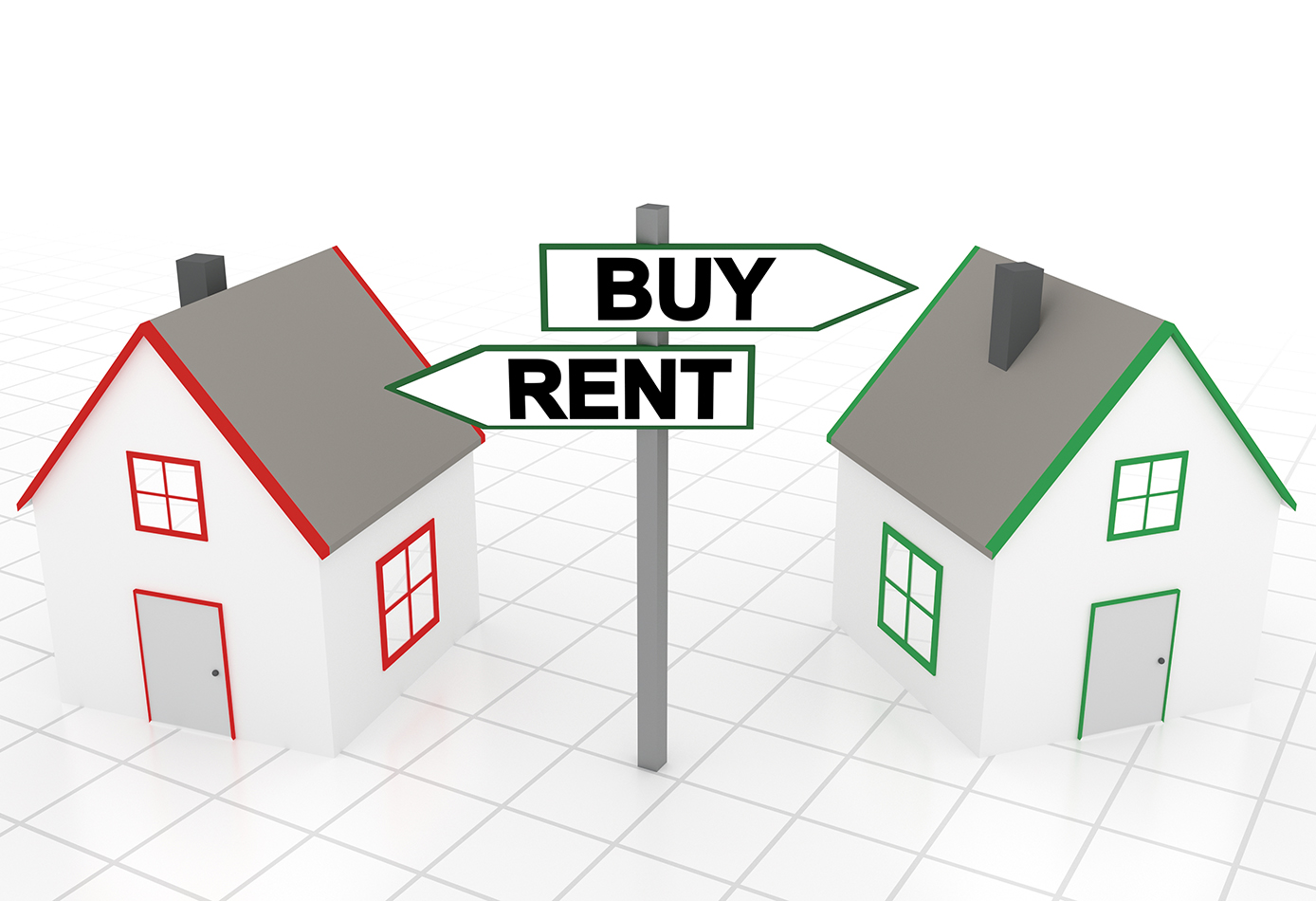The Pros and Cons of Renting
From a purely financial perspective, renting can have a lot of appeal because the home sale proceeds can go straight into your savings in their entirety.
“Typically, it costs more to buy than to rent and invest the money you get from selling,” Braun says. “Your investments will give you some growth that can add to your income. But the big question, of course, is whether that money actually gets set aside. Sometimes that doesn’t happen.”
Assuming you do have the willpower to set all that money aside for investment purposes rather than squandering it, the other big advantage of renting is that you have to pay only a fixed cost, typically with very few extras. A corollary benefit of renting is that you no longer have maintenance chores such as shovelling snow, mowing the lawn, or cleaning the eavestrough. “If you’re renting, then all you have to pay is the rent,” Braun says. “There aren’t a lot of added costs. With a house, you’ve got property taxes, insurance, maintenance, and repairs—and those repair costs can be unpredictable.”
In addition, renting provides flexibility, which is particularly valuable if you aren’t sure exactly where or how you want to live in retirement. As Smith points out, if you find you don’t like where you moved, it isn’t difficult to up anchor and find somewhere else, but “if you buy and then decide to move, then you have to pay all those selling expenses once again.”
While some people suggest that if you rent, you’re paying that money every month but getting nothing in return, Dorfman says the math doesn’t really work that way: you’re getting investment growth from the proceeds of the house sale, as well as increased flexibility. “People may overlook rentals because of the thinking that you’re throwing your money away on rent, but that’s a psychological rather than financial point. If the price of buying is high and you don’t want to be bothered with repairs and maintenance, it can have a definite impact on the decision to rent or own.”
On the downside, while annual rent increases are predictable and can be quite low in provinces that have rent control, rents can rise quickly and this can be a problem, especially for those with limited resources. As David Wright acknowledges, his decision to rent would have been quite different without rent control, even though money wasn’t an issue. “That’s why I chose an older apartment building—I knew it would be rent-controlled,” he says. (Prior to 2017, rent control in Ontario applied only to properties built before 1991.)
There’s also the fact that, with renting, you don’t have the same degree of control over your accommodations as you do with buying. You can’t start making alterations or improvements to your unit to suit your preferences, at least not without the owner’s permission. And while renting may provide a more carefree lifestyle without house-related chores, the same can apply to a condo apartment, as well.
Finally, there may be estate considerations. If you have loved ones to whom you’d like to leave something, then home ownership can be viewed as a sort of forced savings plan: you can’t start chipping away at the value of your home as easily as you could withdraw money now and then from your investment pool. Nevertheless, your first priority should be your own comfort and happiness.
“The most important factor in the decision is your need for cash flow,” Dorfman says. “You need to create a detailed financial plan for retirement, or have a qualified financial planner do it for you, to determine if there are any income gaps. When you look at the numbers in the plan, it will become obvious which makes more sense, buying or renting. But if you’re not an expert, you should get some professional help.”
Smith agrees: “A lot of today’s retirees may have bought their homes as much as 50 years ago, and the real estate market is very different now from what it was then. It’s important to work with financial advisors and real estate agents who are knowledgeable about the current situation. You need a plan, and a good financial planner can bring all those questions to the table and then figure out how they impact your overall retirement plan.






